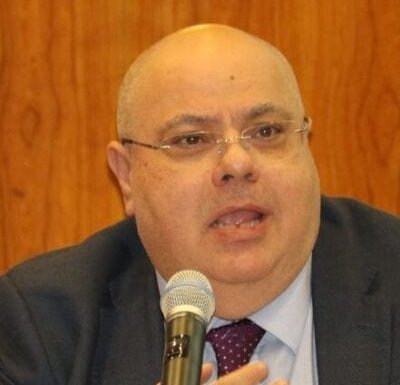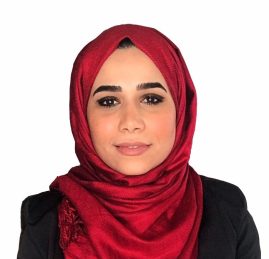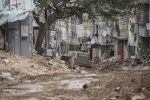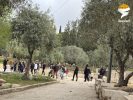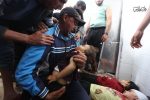Ask any Palestinian about their connection with Palestine wherever they live and the olive tree would figure prominently in what Palestine means to them. This would be alongside the flag and the Kufiyah. It would be difficult to find a Palestinian house that does not store and consume large quantities of olives and olive oil. Every year the olive harvest which takes place in the autumn is a time for hard work and dedication to harvest the olives to press them for oil and to prepare the rest for consumption either in the domestic Palestinian market or for export.
It is estimated that there are close to 8 million fruit bearing olive trees in the Palestinian territories producing an estimated 25000 tons of olive oil per year. It is further estimated that around 100000 families rely on olives for their main income.
Palestinians further see the olive tree as symbolizing their longevity and their resilience in their homeland. While some trees date back to the Roman era one tree in Bethlehem is estimated to be 5500 years old and may be the oldest olive tree in the world. It is likely to have been planted by the Canaanites. It is reported that Palestinians plant some 10000 new olive trees a year while Israel and settlers have destroyed more than an estimated one million trees.
The symbolism of the olive tree extends further than its monetary value. Yasser Arafat famously referred to the olive tree in his speech to the United Nations in 1974 when he pleaded “Today I have come bearing an olive branch and a freedom-fighter’s gun. Do not let the olive branch fall from my hand. I repeat: do not let the olive branch fall from my hand.”
Yasser Arafat passed away in November 2004 still holding onto the olive branch. However the destruction of Palestinian olive trees particularly by settlers continues unabated. In Israeli language this would be called agricultural or economic terror and the perpetrators terrorists. In most democratic countries terrorists would be brought to account but not in Israel. Reporting by western media if found would refer to ‘settler violence’.
A quick search of the internet would yield a spike in settler terror around the time of the harvest but in addition theft of the harvest that Palestinians have tended to for a year and on which some rely heavily for their annual income.
Th scenario is now a common one where Palestinians are restricted from harvesting their olive crop by the Israeli Defense Force (IDF). They may need a permit from the occupation to tend their land or to harvest their olive crop. Their land could be on the other side of the Apartheid wall. Even with a permit they may have to drive miles to go through a gate in the wall simply to access their land. They could arrive at their land to find the settlers have stolen their crop or cut their trees down.
The settlers can be a handful or as happened recently in Salfit tens of settlers set out to deliberately interrupt the olive harvest terrorize the olive pickers and use stones or pepper spray to force them off the land.
The Palestinian farmers cannot look to the Palestinian Authority security forces for protection while they try to earn a living peacefully. Whichever area in the West Bank or East Jerusalem they happen to own land in the IDF would not allow the PA security forces to come to the rescue of Palestinians. However as the occupying force one would expect the IDF to undertake that role themselves. They do not do that. On the contrary they either accompany the settlers knowing what they plan to do or they arrive once the Palestinians have reacted to defend themselves from settler attacks not to arrest the settlers but to arrest Palestinians who resist. The self-proclaimed ‘most moral army in the world’ shows its true face—by acting most immorally in order to protect the criminals and arrest the victims.
In the absence of protection from PA security forces or the IDF Palestinian civilians come to the rescue of Palestinian farmers including the formation of protection groups such as Fazaa who split themselves into groups helping pick olives with the farmers monitor the settlers to try and avoid the attacks and monitor and document the attacks.
The uptick in settler violence during the olive harvest season and the protection they are afforded by the IDF simply confirms that whether in uniform or out of uniforms the settlers and IDF collude in their attempts to force Palestinians off their land through violence to allow the settlement project to continue unabated. New ‘illegal’ outposts are created to shrink the land available for Palestinians and edge Israel closer to greater Israel on the land of historic Palestine.
The settlers are effectively used as human shields by Israel in their continuing annexation of Palestinian land. Those who continue to cling onto the ‘two-state-solution’ must now accept that if Israeli governments assisted by settlers and protected by the IDF continue to violate the rights of Palestinians so as to shrink the land available for their development and terrorize them to leave their land then that charade is over.
Israel has no interest in peace. The Israeli Prime Minister Naftali Bennet has stated his three nos. No meeting Mahmoud Abbas; no to restarting the peace process and no to a Palestinian state. The rationale for this according to him is the Palestinian Authority’s (PA’s) pursuit of Israeli war criminals at the ICC. He recently went further claiming that “a Palestinian state would be a terror state”. He makes this claim as the Palestinians face terror from a state that heaps terror on the occupied Palestinian people and is now widely regarded as an Apartheid state.
The Israeli governments must know what the settlers and the IDF are up to in the occupied territories as the Palestinians attempt to harvest their olives. While the settlers act as human shields for the expansionist Israeli project the government shields them from accountability for their crimes by emboldening them rather than bringing them to account. It is time the world recognized this collusion in oppression and acted to sanction Israel for its and its settlers’ crimes.
– Professor Kamel Hawwash is a British Palestinian engineering academic based at the University of Birmingham. He is a commentator on Middle East affairs Chair of the Palestine Solidarity Campaign (PSC) and a founding member of the British Palestinian Policy Council (BPPC). His article appeared in MEMO.

